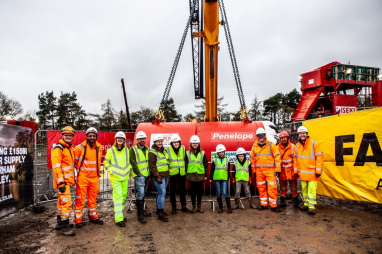- air jordan 1 mid outlet
- nike air force 1 uv color change da8301 100 101 release date
- Украина #117281285 , missy elliot adidas tracksuit pants , Женский спортивный костюм adidas — цена 989 грн в каталоге Спортивные костюмы ✓ Купить женские вещи по доступной цене на Шафе
- nike junior av hooded top black white , Nike Air Yeezy Slippers
- Украина #126535155 , Женские кроссовки nike jordan white black pink — цена 2549 грн в каталоге Кроссовки ✓ Купить женские вещи по доступной цене на Шафе , Air Jordan 2 Retro Low Gym Red x Jordan AJ 2 23 Wings T-Shirt
- nike air force 1 low white gold dc2181 100 release date info
- Air Jordan 1 Blue Chill Womens CD0461 401 Release Date 4
- eastbay restock large amount air jordans
- air jordan xxxv cq4227 004
- Travis Scott Air Jordan 1 High OG CD4487 100 Release Date Price
- Home
- News and analysis
- Info hubs
- Events
- Video
- Case Studies
- About us
- Magazine
- Advertising
Produced for the industry by the Association for Consultancy and Engineering
Opinion
A time to reflect on the value of water
It was World Water Day on March 22. Organised by the United Nations to celebrate water and inspire action to tackle the global water crisis, it has been putting the issue in the spotlight for more than 30 years. Today, experts at Buro Happold consider the value of this most precious resource

Most of us are lucky enough to live in areas where water flows freely, but not so much that we are at the mercy of regular flooding.
But to be nonchalant about its value and how flood risk should be managed would be a mistake.
As the climate crisis continues to bite, and as constant economic and social changes impact the way we live, work, and operate, how we manage water becomes more important than ever.
Water is a critical piece in the wider puzzle of sustainability.
To mark World Water Day this year, Buro Happold explains its approach to water engineering and how it fits within wider sustainability conversations.
The global practice of engineers, designers and advisers explains the principles at the core of its water resource and flood risk management, how to manage this vital resource, as well as how to protect people and assets from flooding and drought threats.
How can we value water more?
Water is essential for life, that alone should be enough to define its value.
We know the devastating effects water shortages can cause, therefore its preservation should be at the forefront of all our minds. But unfortunately, it’s not.
Anna Bruni, an associate in Buro Happold’s water group, said: “Water is central in all our lives.
“Without water, you can’t have cities, communities, agriculture, or development.
“Unfortunately, we tend to take water for granted and it is one of the least valued commodities in the word – but it should be one of the most valued. And because a huge amount of climate risks relates to water, we need to wake up.”
There’s no doubt we need to work together to change the world’s view on water.
To lead by example, the built environment should have a clear, unwavering approach to water management.
Buro Happold’s vision for water resource management is to maximise the efficient use of water, protect and regenerate water resources and guarantee security of supply for regions, cities and development sites far into the future.
Buro Happold says this requires a holistic assessment of the entire natural and man-made water cycles, as well as specific drought-resilient strategies, which are grounded in a catchment-based approach.
David Palmer, director of Buro Happold’s water group puts education at the heart of changing how water is managed.
He said: “We have a disconnected and unhealthy relationship with water because we don't value it like we should. Technology can help, but education is critical. A lot of bad practices are simply uninformed practices.”
He says if we can change mindsets and attitudes towards water, then we can support the delivery of positive outcomes and the prioritisation of its importance in our collective consciousness.
He added: “One of the best things we can do as consultants is to get involved as early as possible in a project, so we can educate and inform our clients and key stakeholders of the importance of considering water at all stages.”
Working across borders
World Water Day for 2024 – which took place on March 22 and is organised by the United Nations - had the theme of “water for peace”.
This acknowledged the power water has for creating and sustaining successful, thriving communities – and the potential for conflict and tension when water is scarce, polluted, or unequal (or no) access is provided.
The UN said: “As climate change impacts increase, and populations grow, there is an urgent need, within and between countries, to unite around protecting and conserving our most precious resource.”
Cooperation across boundaries, borders and communities is key to building resilience against resource shortages.
Collaborating with one another instead of competing against other organisations and anyone we see as outside of our group is vital.
This is something engineers at Buro Happold are acutely aware of and support. Buro Happold works across multiple jurisdictions and countries, as water resources often span across legal boundaries and is therefore not free from politics.
“We also understand the different scales at which water must be managed” added Bruni. “You can look at water at a small, local scale (where we consider interventions like Sustainable Drainage Systems (SuDS) and water efficient measures and zoom to and look at it on a city level - where we may consider grey-or-black-water recycling plants.
“And you can zoom out once again and see water resource management at a country level, and it is here we need to consider water politics and the impact of upstream decisions on downstream systems.”
How can we contribute to a net-improvement?
So much of Buro Happold’s work depends on a wide variety of skill sets, as well as working in an increasingly multi-and-transdisciplinary way.
Bruni said: “Water permeates a huge amount of what engineering does. This is an exciting moment for those who work in water engineering at Buro Happold, and we have a breadth of experience that is critical in delivering the outcomes our clients need.”
She added: “We cover the water cycle side of this work, but also the flood risk side, because inevitably there is an overlap. We constantly have opportunities to work on both sides.”
The risks posed by droughts are well documented and usually spring to mind when talking about water resource management.
However, the risks of flooding should be given equal weight.
As the climate emergency continues to impact all corners of the world, Buro Happold’s vision for flood risk management is to protect the safety of people and valuable assets across regions, cities, and development sites.
This is achieved by implementing resilient and robust flood risk management solutions that maximise positive opportunities, while ensuring no adverse impact to others.
Bruni said: “We don’t just aim for a reduction of flood risk but for an overall net improvement, where each development unlocks the opportunity to improve flood risk resilience.
“We don't just want to meet the demands of today, keeping the site safe from flood risk and meeting the minimum water demands. We want to achieve a net improvement, using development as an opportunity to improve the flood risk in the community or to improve the water resource balance in an area, city, region, or country.”
What does the future look like?
Effective management of water is subject to both, shifts in technology, and social influences. Therefore, we need to be agile and responsive to changes in the approaches taken towards water and flood risk management.
Duncan Ker-Reid, technical director of Buro Happold’s water group, believes in a more holistic water model that considers the varied and complex influences currently impacting work around water and floods.
He said: “Underpinning all water resource management is the return of a more holistic water cycle model.
“Computational improvement, including AI and machine learning of the last few years, provides the opportunity to shift away from a siloed approach.
“For flood risk management, key areas of growth will emerge with the expansion in AI and machine learning in the fields of data management.
“Flood risk management includes processing a lot of data – such as rainfall, river and sea levels – before using it to predict what might happen based on climate models.
“AI and machine learning will be useful in analysing incoming data feeds and making predictions about future events.”
World Water Day is a time to reflect on water's importance and to reevaluate how we use it.
The intricate relationship between water resources and the climate crisis, means effectively managing water resources is essential.
Buro Happold says the built environment industry needs to work together to change mindsets when it comes to how we approach - and protect - this precious resource.





